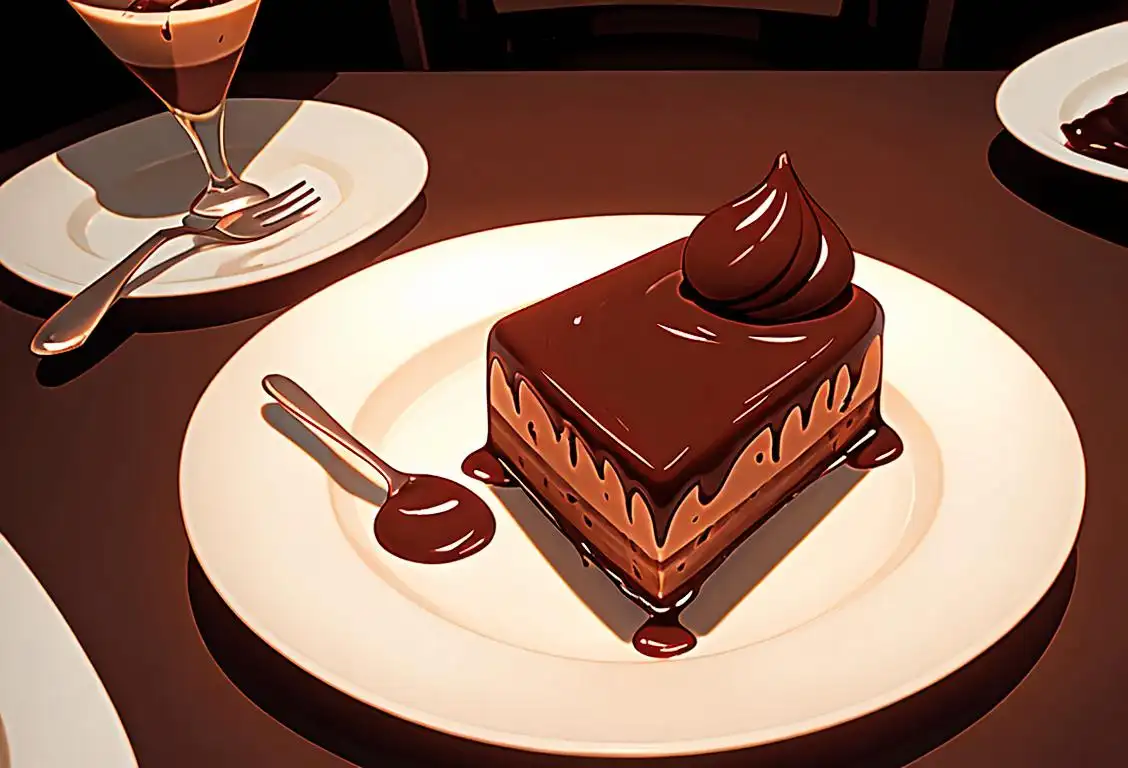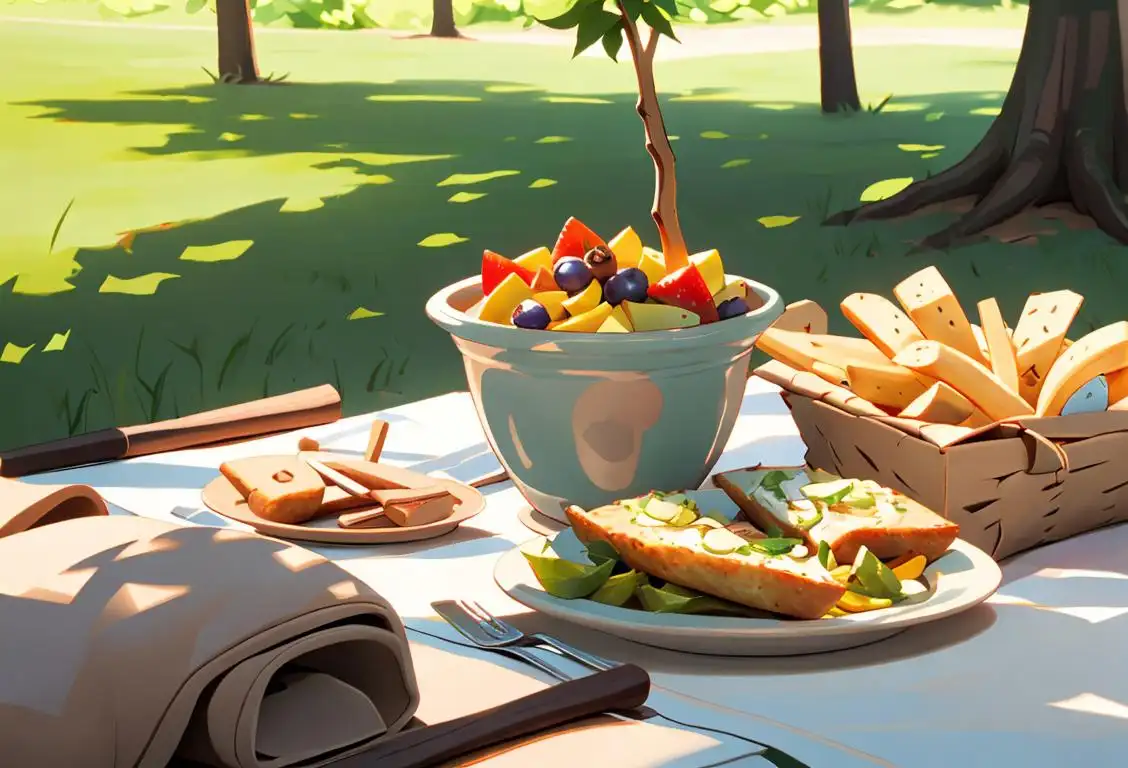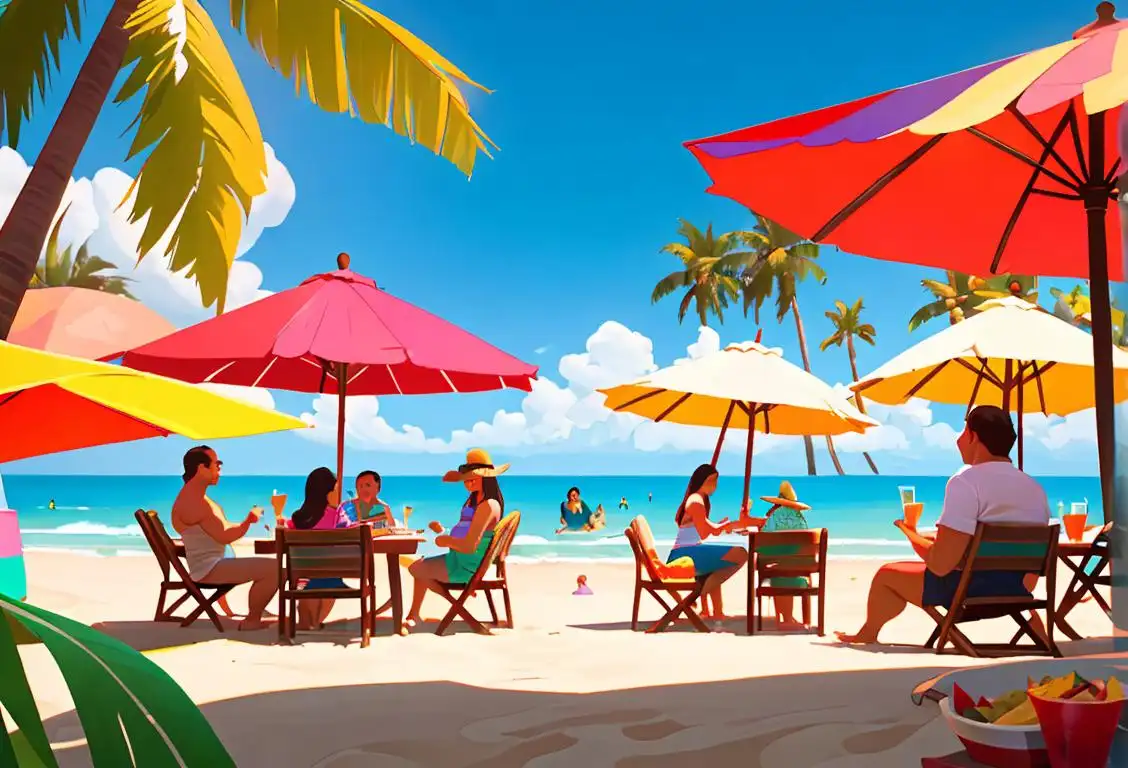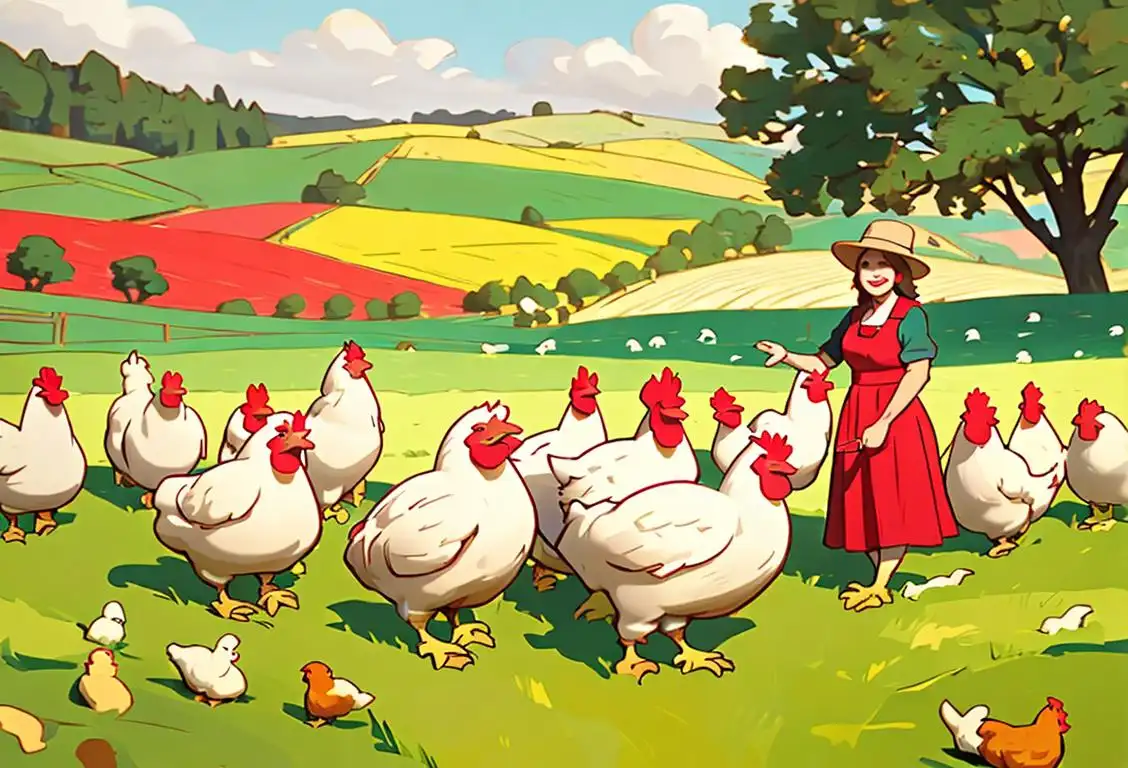National Munchie Day
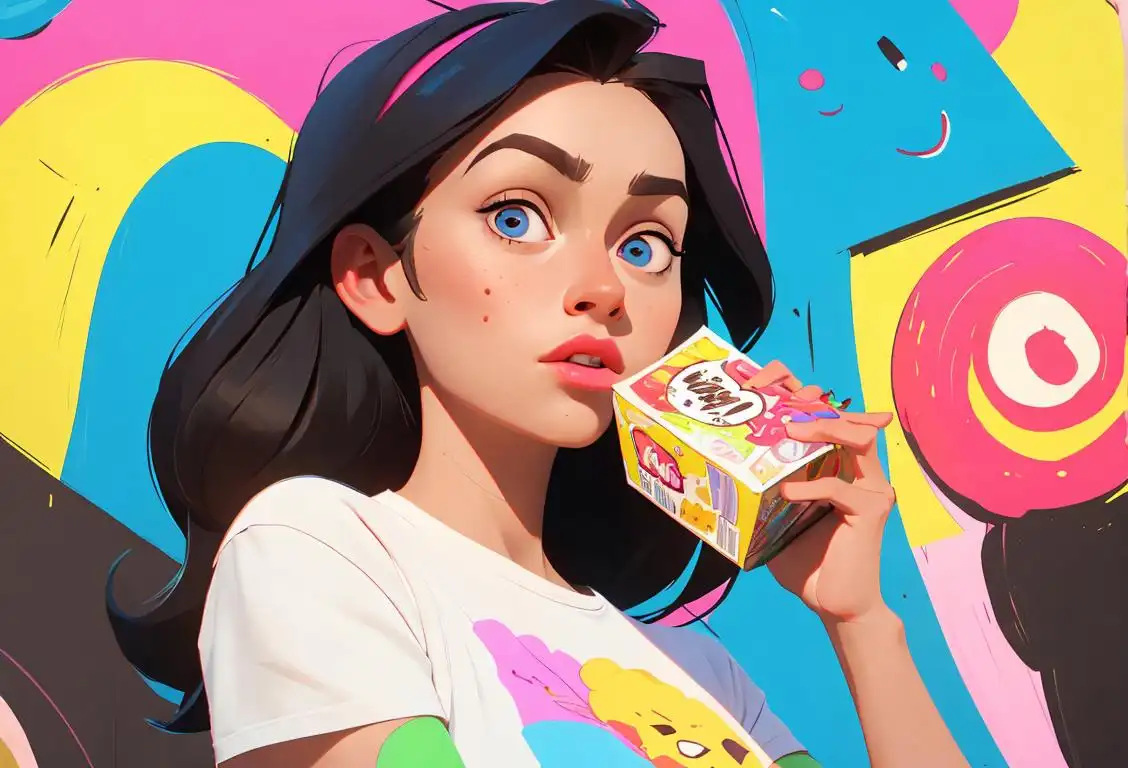
Welcome to the munchie madness! Get ready to indulge in all your favorite snacks because today is National Munchie Day!
When is Munchie Day?
It's national munchie day on the 20th April.
The Origins of National Munchie Day
Have you ever wondered how this deliciously delightful day came to be? Well, let me enlighten you with a brief journey through internet history.
Back in 2016, the internet was abuzz with mentions of National Munchie Day. People from all walks of life were sharing their love for snacks, and the hashtag #NationalMunchieDay trended on social media platforms.
The origins of this day can be traced back to a group of food lovers who wanted to celebrate the joy of snacking. They felt that snacks deserved their own special day, separate from regular meals. After all, snacks are like the sidekicks of the culinary world, always there to satisfy our cravings and bring a little extra happiness to our day.
On April 20, 2016, National Munchie Day stole the spotlight as the most mentioned day online. It was a feast for the eyes and taste buds as people shared pictures of their favorite snacks, from classic chips and cookies to more adventurous choices.
How to Celebrate National Munchie Day
Now that you know the history, it's time to dig into the main course of this delightful day - the celebration! Here are a few ideas to get your snack-loving spirit soaring:
- Host a munchie potluck with your loved ones. Everyone brings their favorite snacks to share, creating a smorgasbord of savory and sweet delights.
- Challenge your friends to a snack-related competition. Who can eat the most chips in one minute? Or guess the flavor of various snacks blindfolded? The possibilities are endless!
- Create your own signature snack. Unleash your culinary creativity and experiment with different flavors and ingredients. Imagine the satisfaction of taking a bite out of your very own creation!
Did You Know?
Did you know that the word 'munchie' originally referred to a small snack, but it has now come to represent the irresistible craving for snacks that often strikes during late-night movie marathons or gaming sessions? It's the battle between willpower and the desire for deliciousness!
History behind the term 'Munchie'
1930
Marijuana Prohibition in the United States
In 1930, the U.S. Federal Bureau of Narcotics launched a campaign to demonize cannabis and its users. This campaign aimed to associate marijuana with deviant behavior and criminality, resulting in the eventual prohibition of cannabis in the United States. The negative portrayal of marijuana contributed to the emergence of the term 'munchie' in popular culture.
1930
The Birth of the Munchie
The term 'munchie' was first coined in 1930 and is derived from the word 'munch,' which means to eat something in a noisy or vigorous way. It refers to the desire for snacks or light foods, especially when experiencing the munchies, a common side effect of smoking marijuana.
1970
The Emergence of 'Munchie'
In the year 1970, the term 'munchie' first emerged in popular culture. Derived from the word 'munch' which means to eat something in a noisy or greedy way, 'munchie' was coined to describe the intense cravings for snack foods that often accompany the use of marijuana. This term became synonymous with the hunger pangs and desire for indulgent food experienced by individuals after consuming cannabis.
1970
Counterculture and Cannabis
During the 1970s, countercultural movements embraced cannabis as a symbol of rebellion against societal norms. Marijuana began to permeate various aspects of popular culture, including music, cinema, and art. The term 'munchie' gained traction during this time as an expression used to describe the intense hunger pangs often experienced after consuming cannabis.
1970s
The Munchie Phenomenon
During the counterculture movement of the 1970s, the term 'munchie' gained popularity, particularly among the cannabis subculture. As marijuana use became more mainstream, the concept of munchies became widely known among both users and non-users, often associated with the intense food cravings that can occur after consuming cannabis.
1992
Munchies in Popular Media
In 1992, the term 'munchie' gained even more recognition when it was featured prominently in the cult classic film 'Dazed and Confused.' The movie depicted a group of high school students celebrating the last day of school in the 1970s. One of the main characters, portrayed by Matthew McConaughey, famously uttered the line, 'Alright, alright, alright! Let's go get some munchies!' This popularized the term 'munchies' among a wider audience and solidified its association with the craving for food after consuming marijuana.
1990
Rise of Stoner Culture
In the 1990s, stoner culture began to flourish. Movies like 'Dazed and Confused' and 'Half Baked' portrayed characters who frequently indulged in cannabis and craved snacks afterward. This depiction further popularized the term 'munchie' as a humorous way to describe the insatiable hunger caused by marijuana use.
2000s
Munchie Culture and Late-Night Snacking
Throughout the 2000s, the term 'munchie' became deeply ingrained in popular culture, particularly within the realm of late-night snacking. It became widely recognized as a playful way to describe the desire for tasty and often indulgent snacks late at night, regardless of whether marijuana was involved or not. Munchies were not only associated with satisfying hunger but also with a form of relaxation and enjoyment, often paired with movie nights, gaming sessions, or social gatherings.
1990s
Munchies in Pop Culture
In the 1990s, the term 'munchie' became a recurring theme in popular culture, featured in movies, TV shows, and music. Comedies like 'Harold and Kumar Go to White Castle' and 'Half Baked' portrayed characters indulging in massive food binges driven by the munchies, further cementing the term's place in modern slang.
Present Day
Munchie Connoisseurship and Culinary Innovations
In the present day, the term 'munchie' continues to evolve. The concept of munchies has transformed into a culinary art form, with dedicated food enthusiasts exploring and creating innovative snack combinations. This has led to the rise of specialty munchie culture, where individuals seek out unique and indulgent treats to satisfy their cravings. From loaded nachos to extravagant milkshakes, the world of munchies has expanded far beyond its roots and has become a realm of culinary fascination and enjoyment.
2004
Official Recognition
The term 'munchie' was added to the Merriam-Webster Dictionary in 2004, acknowledging its widespread usage and cultural significance. This recognition solidified 'munchie' as a legitimate term in the English language, separate from its original association with cannabis.
2004
Munchies in the Oxford English Dictionary
In 2004, the term 'munchies' was officially recognized and included in the Oxford English Dictionary. This recognition solidified 'munchies' as a widely accepted term to describe the voracious appetite associated with marijuana consumption. The term has since become ingrained in contemporary popular culture.
Present
Munchies in Everyday Life
Today, the term 'munchie' has expanded beyond its association with cannabis and is commonly used to describe any strong craving for food or snacks. It has become a part of everyday language, often used humorously to describe intense, insatiable hunger or an irresistible desire for a particular type of food.
Did you know?
Did you know that the word 'munchie' originally referred to a small snack, but it has now come to represent the irresistible craving for snacks that often strikes during late-night movie marathons or gaming sessions?Tagged
nsfw food funFirst identified
20th April 2016Most mentioned on
20th April 2016Total mentions
8Other days
Chocolate Mousse Day
Something On A Stick Day
Children Day
Awareness Day
Frappe Day
Taco And Vodka Day
Happiness Day
Opposite Day
One Day
Poultry Day
